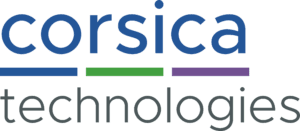Last updated August 13, 2025.
No doubt about it, the healthcare industry faces unique challenges in terms of technology. From evolving cybersecurity threats to portability of medical records, the issues are complex, facing both small and large providers alike.
For many healthcare organizations, managed IT services are the answer. But not every MSP (managed service provider) is equipped to deliver robust IT solutions in the healthcare industry. Providers need to understand their own requirements thoroughly, then vet potential partners rigorously.
Here’s everything to consider as you look for an MSP.
Key takeaways:
- Qualified MSPs can help achieve and maintain HIPAA compliance.
- Qualified MSPs offer affordable, flexible access to IT experts with healthcare experience.
- The best MSPs have expertise in EDI, data integration, and hardware as a service in addition to standard IT capabilities.
- Consider an MSP’s commitment to SOC 2 Type 2 examinations when choosing a provider.
Why choose managed IT services?
As a healthcare provider, you experience unique challenges that aren’t found in other industries—or that look different in the context of healthcare. If an MSP is going to serve you well, they need to demonstrate deep understanding of these issues, and they need proven experience in addressing them.
Here are the most common IT challenges that our clients face in the healthcare industry—and how managed IT services can help.
1. HIPAA compliance
Achieving and maintaining HIPAA compliance is no small feat. The burden is significant for both large and small providers. You or your MSP need to cover:
- Understanding HIPAA vs HITECH
- Conducting compliance gap assessments
- Creating and implementing remediation plans
- Ongoing staff training
- Incident response and containment
- Creating and maintaining policies and procedures
- Creating and maintaining agreements with vendors and business partners
These are some of the most common reasons that providers choose a managed service provider to help with HIPAA. Here at Corsica Technologies, we’ve helped numerous clients achieve and maintain HIPAA compliance.

“Having six different entities all integrating their networks, our phone systems, the security systems, medical records and HIPAA compliance was very complex.”
—Dana McConnell, Executive Director, Center for Developmental Studies
2. Aging legacy systems
The older your organization, the more likely you are to have legacy systems in place. These software solutions often don’t integrate with other systems, requiring complex workarounds and manual data entry. They’re also more likely to have security issues, whether you’re aware of them or not.
The right MSP can help you solve these problems. Just make sure your MSP has expertise in healthcare, digital transformation, HIPAA, and data integration.
Speaking of which…

3. Interoperability and data integration
Unfortunately, system interoperability remains a significant issue in healthcare. With different data standards in place across the industry, medical records aren’t always as portable as they should be. Both patients and providers suffer from lack of real-time visibility and the difficulty in transferring records.
A world-class MSP can help you overcome these challenges. The key is to use the right technology for the job—and make sure it’s reliably integrated to every system where it needs to share data.
4. Budget constraints
Everyone feels the strain of current economic conditions, and healthcare providers aren’t immune. Budget constraints add an additional layer of complexity as providers seek to solve their IT challenges.
In particular, the billing practices of most MSPs don’t help with this issue. Unpredictable invoices are the norm, which makes it incredibly challenging to maintain your budget.
Here at Corsica Technologies, we have a solution. We offer 100% predictable monthly pricing, no matter how much support you need. Read more here: The Corsica Difference.
5. Cybersecurity
With the average data breach costing $4.88M according to IBM, cybersecurity has become a primary concern for providers of all sizes. While HIPAA compliance overlaps with cybersecurity efforts, your organization may need additional security controls to protect patients, employees, and data. This is especially true as cyber threats continue to evolve in the age of AI.
The right MSP will take an integrated approach to managed IT and cybersecurity. Here at Corsica Technologies, we place cybersecurity at the core of everything we do, helping you achieve a comprehensive approach to security.
6. AI strategy
AI offers incredible opportunities for healthcare providers. But how do you use AI to improve patient outcomes—and how do you transition your organization to that place? How do you get from your current state to your ideal destination?
Consulting with your MSP can help you answer these questions in the context of current best practices in healthcare. Learn more here: AI Strategy Consulting.
7. Rising cost of skilled talent in IT and cybersecurity
As demand increases for skilled IT professionals, their salaries continue to rise. The US Bureau of Labor Statistics estimates that the cybersecurity job market will grow 33% between 2023 and 2033. It’s getting harder than ever for healthcare organizations to hire and retain these professionals.
An MSP solves this problem. You get access to an entire team of specialists—often for roughly the cost of one staff hire. It’s a smart way to solve one of the toughest IT problems in healthcare today.
8. Incomplete IT skillset among staff resources
Some providers have no IT professionals on staff. Even those that have an IT team may struggle to cover all their needs. It’s easier to hire generalists than specialists, which leaves organizations struggling to cover their gaps.
This is one of the biggest pain points that a managed service provider can alleviate. Whether you hire an MSP for fully managed services (covering everything) or co-managed services (working alongside your team), there’s a huge benefit in getting the skillset that you need to operate smoothly.

9. Lack of real-time data visibility for providers and patients
Legacy systems and disconnected solutions make it hard to share essential health data. A managed IT services provider can assist with data integration, smarter systems, and better data management. This gives healthcare professionals the advanced, real-time data they need to make intelligent decisions about treatment. It also opens up the possibility of sharing healthcare data with patients in real time through mobile applications and online portals.
10. Rapid evolution of technology
Healthcare technology is evolving faster than ever. It’s tough for providers to stay on top of the latest trends and best practices. A managed service provider can assist, bringing a broad industry perspective to bear on your situation.
3 most common managed services for healthcare
Every provider is different, and some will need more help from an MSP than others, but there is a core of managed services that are essential for all providers. Here are the most common ones among our healthcare clients.
- Managed IT services. Your MSP will assist with network management, workstations, servers, cloud systems, and everything related to IT infrastructure.
- Managed cybersecurity services. Your MSP will assist with real-time monitoring, threat detection, and remediation—plus cybersecurity awareness training, consulting, and more.
- Managed HIPAA compliance services. Your MSP will assist with gap assessments, remediation plans, and ongoing compliance with essential regulation.
These are only highlights. For an exhaustive list of managed IT services, check out our Corsica Secure service package.
3 managed services that are often overlooked in healthcare
Not every MSP is up to the challenges of the healthcare industry. In fact, many MSPs overlook certain essential services, such as:
- EDI services. Exchanging documents with other providers and insurance companies is nearly impossible without EDI. Yet most managed IT service providers can’t help healthcare companies with these technologies. Hint: Corsica Technologies combines deep EDI expertise with the standard capabilities of an MSP.
- Data integration services. Data exchange is critical to creating the best outcomes for patients. Yet data exchange is incredibly difficult, whether you’re integrating internal systems or connecting with partners outside your organization. That’s why Corsica Technologies brings together data integration expertise with all the standard capabilities of an MSP.
- Hardware as a service. Not every provider has the internal resources to keep up with workstations, servers, and network equipment. The right MSP can solve this problem with hardware as a service (HaaS), an arrangement in which the MSP handles everything related to device maintenance, upgrades, and replacement.

What should you look for in a managed IT service provider?
While many MSPs claim to work with healthcare clients, it’s worth reading the fine print, asking for references, and checking out the MSP’s credentials. Here are the most important things to look for.
Strong client testimonials in the healthcare industry
If you want to know whether an MSP is worth their salt, just ask their clients. This is especially important in the healthcare industry—as not every MSP is really equipped to deal with your unique challenges.

“When we did a head-to-head comparison on the services and prices, Corsica came out ahead across the board.”
—Rich Alberti, COO, Medpoint
Transparency regarding SOC 2 Type 2 audit
SOC 2 Type 2 is an auditing process that examines an organization’s data security controls over a given period, usually one year. It isn’t a certification or pass/fail exam, so it’s inaccurate to say that an MSP is “SOC 2 Type 2 certified.” Rather, SOC 2 Type 2 is a voluntary audit that an organization may choose to undergo.
Sharing the results of this audit is a strong signal of transparency and trustworthiness, making SOC 2 Type 2 a great criterion for evaluating potential MSPs. Note that most MSPs will require an NDA before disclosing their auditor report, as the report may contain sensitive information.
Certifications relevant to healthcare IT services
While SOC 2 Type 2 isn’t a certification, there are several certifications to look for. These indicate that a company is well equipped to work in the healthcare industry. In particular, two certifications related to HIPAA are a good indicator of an MSP’s expertise.
- CHSP: HIPAA Security Professional
- CHWP: HIPAA Workforce Proficiency
This list isn’t exhaustive. Here at Corsica, our team maintains 300+ certifications. You can see them all there: Corsica Technologies Certifications.
The takeaway: Get the expertise you need in managed services
The healthcare industry comes with unique challenges in terms of managed IT services. Interoperability of records, HIPAA compliance, and budgetary constraints add special layers of complexity to the problem. But the right MSP can partner with you to solve these challenges. Here at Corsica Technologies, we have 30 years’ experience and 1,000+ clients—with many of them in the healthcare and medical industries. Get in touch today, and let’s take the next step in your journey with managed IT services.

Ready to get the managed services you need?
Reach out to schedule a consultation with our technology specialists.












